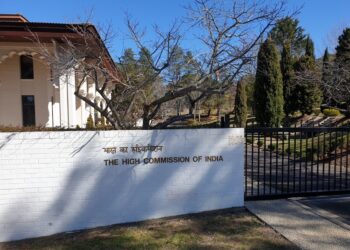A special court in India has sentenced three men to death for their role in the 1981 caste massacre that claimed the lives of 24 Dalits in Dehuli village, Uttar Pradesh. The ruling, delivered after 44 years of legal proceedings, classifies the crime under the “rarest of the rare” category, justifying capital punishment.
The convicted individuals, part of an armed gang, were found guilty of attacking the village while disguised as police officers. Their actions led to widespread fear, mass displacement of Dalit families, and a prolonged legal battle for justice. The sentencing highlights the decades-long struggle against caste-based atrocities in India and raises questions about judicial delays in cases involving marginalized communities.
Key Details of the 1981 Dehuli Village Massacre
- Attack Date: 18 November 1981
- Victims: 24 Dalits, including women and children
- Perpetrators: A gang of 17 men, most from upper-caste backgrounds
- Motive: Retaliation for the murder of a Dalit gang member by his upper-caste associates
- Aftermath: Mass exodus of Dalit families, months-long police deployment in the village
A Legal Battle Spanning Four Decades
Despite the horrific nature of the crime, the case witnessed repeated delays, with legal proceedings shifting across courts for over four decades.
- 1981: Case registered by police
- 1984: Transferred to the Allahabad Sessions Court
- 2024: Moved to a special court in Mainpuri, which delivered the final verdict
- Current Status: Out of 17 accused, 13 have died, one remains absconding, and three have been sentenced to death
Relatives of the victims welcomed the ruling but expressed frustration over the lengthy legal process, stating that many of the accused had lived full lives before justice was served.

Survivor Accounts: Memories of a Brutal Night
Eyewitnesses recall a night of terror when the attackers stormed the village and opened fire for over four hours. Survivors describe hiding for their lives as their family members were gunned down.
- Rakesh Kumar, a survivor, recalls his mother being shot while trying to escape.
- Chameli Devi, now 80, was among those injured but survived the attack.
- The massacre triggered protests, political outrage, and a visit from then-Prime Minister Indira Gandhi.
Delayed Justice and the Struggle Against Caste Violence
The Dehuli massacre is among the many caste-based crimes that have taken decades to reach a verdict. In 2023, a 90-year-old man was sentenced to life imprisonment for another caste-related crime from 1981. The slow judicial process raises concerns about access to justice for marginalized communities.
This verdict, while significant, underscores the systemic delays in India’s legal framework and the need for faster resolution of cases involving caste-based violence. The convicted men have the right to appeal to a higher court, but for many survivors and families, this ruling marks a long-awaited acknowledgment of their suffering.










